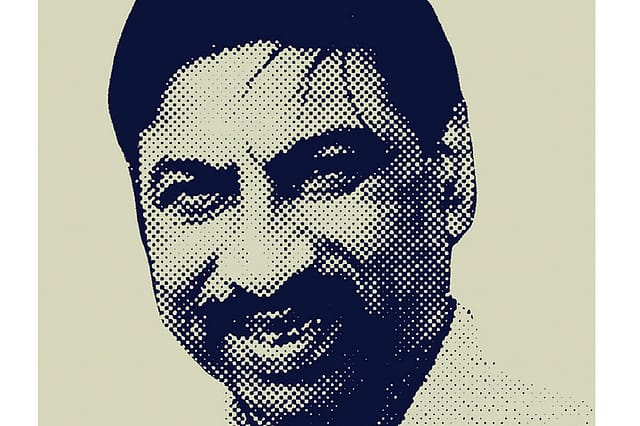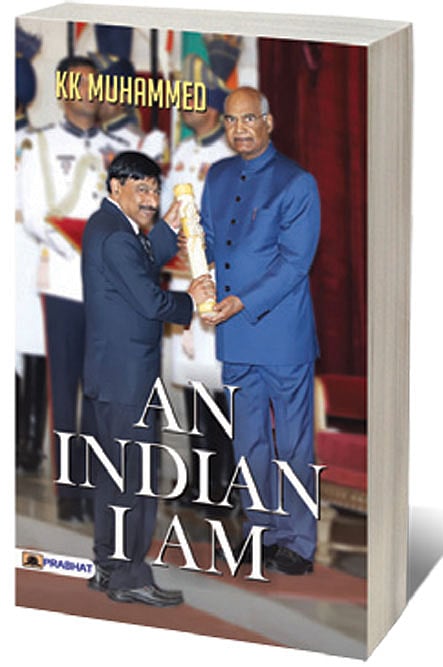Truth Be Told

KK MUHAMMED IS one of India’s most renowned archaeologists. Hailing from a traditional Mappila family in Kerala, his education began in a madrasa. Thereafter, he moved to Aligarh Muslim University (AMU) where he wanted to pursue his passion for history and archaeology. However, he got the first shock of his life when professor Irfan Habib, the head of the history department, AMU, and chairman of the Indian Council of Historical Research, discriminated against him for joining NSUI (National Students’ Union of India), the student wing of Congress, while Habib was a ‘protector’ of the Students’ Federation of India, aligned to Communist Party of India (Marxist). Muhammed was denied admission to PhD, although the class topper had left for Jawaharlal Nehru University (JNU) and Muhammed, who had come second, was entitled to the seat.
The book, An Indian I am, is a fascinating story of how AMU and JNU created a cabal of Communist historians who influenced the English press, and fed the Babri Masjid Action Committee (BMAC) with lies in order to prevent the construction of a Ram temple. Habib prevented Muhammed from getting a lien from Aligarh to the Archaeological Survey of India (ASI), forcing him to resign from AMU. He even hounded Muhammed in ASI, with rumours that the latter was a member of the Jamaat-i-Islami. He tried to stop various centres from inviting Muhammed to speak, but was unsuccessful everywhere except JNU. Communists seem to have a hatred for archaeology, since it would prove their ideology-driven history wrong. He was the chosen archaeologist to take the Obamas and President Musharraf around the Taj Mahal and his Padma Shri must have been anathema to the communist historians. Muhammed calls Pakistan “the curse of Indian Muslims”. He was equally a target of VHP (Vishwa Hindu Parishad) and Bajrang Dal throughout his career, as he narrates.
Openomics 2026: Continuity and Conviction
06 Feb 2026 - Vol 04 | Issue 57
The performance state at its peak
Muhammed has several discoveries to his credit, including the discovery of the Ibadat Khana (Akbar’s hall of inter-religious discussion) when he was at AMU, as well as the first Christian Chapel built by Akbar. In Ayodhya, Muhammed participated in the excavations led by professor BB Lal, who dug up pillars and defaced Hindu sculptures, making it clear that a mosque was built over a temple. Here again, the Aligarh Marxist historians came out with a publication to support BMAC, questioning Ram, his historicity, the Ayodhya site and describing Ram as a cult figure who was worshipped only after the 18th century. The fact that a Muslim had excavated it turned the tale, although ASI was hesitant to publicly support him. Throughout his career, Muhammed has been transferred out or threatened with suspension, but time and again he was proven correct.
His first punishment posting was in Goa, which resulted in his discovery of the remains of Queen Ketevan of Georgia, which were gifted by the Indian government to Georgia in 2021. In Patna, he was able to excavate much of Nalanda University and find several Buddhist stupas and relics. He stopped the entry of tourists into Shahjahan’s chamber at the Taj Mahal, where they would scratch and gouge out precious stones. In Madhya Pradesh, he discovered and restored the Bateshwar Temple complex. The other important sites of his work include Amarkantak, Kashi and Delhi for the Commonwealth Games. He also effectively disproves the claim that the Qutub Minar and Taj Mahal were Hindu temples.
Muhammed is a votary of “marketing the Indian heritage”, suggesting the formation of a corporation that could charge appropriate fees. As a superintending archaeologist in Delhi, he raised the income from `30 crore to `100 crore by increasing entry, photography and filming licence fees.
Muhammed is certainly a true Indian. He has transcended the boundaries of religion and language to treat every Indian achievement as great. He ends his book with the chapter titled ‘The World Teacher that India Was’. That is his pride.

